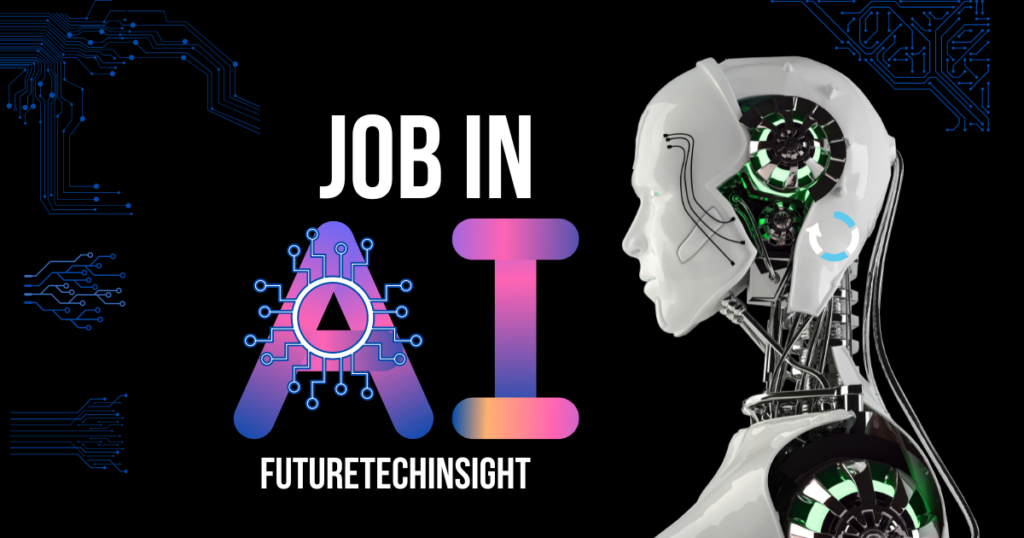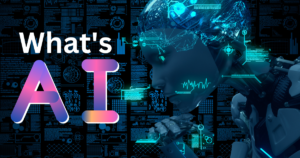
Artificial Intelligence, or AI, is fleetly transubstantiating the way we live, work, and interact with each other. From independent vehicles to virtual sidekicks, AI-powered technologies are getting decreasingly current in our diurnal lives. As a result, the demand for professionals with moxie in AI is growing fleetly, making it one of the hottest career fields in the moment’s job requests. here we discuss about Jobs in AI.
In this composition, we’ll take a near look at what it means to work in AI, the types of jobs that are available, and the chops and qualifications you need to succeed in this field.
What’s AI?

AI refers to the capability of machines to pretend mortal intelligence and geste . This can include everything from literacy and problem-working to perception and decision- timber. The thing of AI is to develop systems that can perform tasks that generally bear mortal intelligence, similar to feting speech, interpreting natural language, and making opinions grounded on complex data.
There are several different approaches to erecting AI systems, including machine literacy, deep literacy, and natural language processing. Machine literacy involves training algorithms to learn from data and ameliorate their performance over time. Deep literacy is a subset of machine literacy that involves training neural networks to fete patterns in large quantities of data. Natural language processing is a branch of AI that focuses on understanding and interpreting mortal language. there are various jobs in ai 2023
What are the different types of AI jobs?
AI is a multidisciplinary field that encompasses a wide range of job places and specializations. They are some of the most common types of Jobs in Ai
Machine Learning mastermind Machine literacy masterminds are responsible for designing and enforcing machine literacy systems. This includes opting for applicable algorithms, training models, and optimizing performance.
Data Scientist Data scientists work with large datasets to prize perceptivity and develop prophetic models. They use statistical analysis and machine literacy ways to identify patterns and trends in the data.
Natural Language Processing( NLP) mastermind NLP masterminds develop systems that can understand and interpret mortal language. This includes tasks like speech recognition, sentiment analysis, and language restatement.
Computer Vision Engineer mastermind Computer vision masterminds design and develop systems that can interpret and dissect visual data. This can include tasks like object recognition, facial recognition, and image bracket.
AI Experimenter AI experimenters are responsible for advancing the state of the art in AI by developing new algorithms and ways. They work in academic or commercial exploration labs and publish papers in academic journals.
What chops do you need to work in AI?
Working in AI requires a different set of chops and qualifications. They are some of the most important
- Strong Programming Chops AI professionals need to be complete in programming languages like Python, Java, and C. They should also have experience with machine literacy fabrics like TensorFlow and PyTorch.
- Mathematics and Statistics AI professionals should have a strong foundation in mathematics and statistics, including direct algebra, math, and probability proposition.
- Data Analysis AI professionals should be professed in data analysis and visualization tools like Tableau, Power BI, and Excel.
- Communication AI professionals should be suitable to communicate specialized generalities to non-technical stakeholders, including directors and directors.
- Problem-working AI professionals should be suitable to approach complex problems with a logical and logical mindset and be suitable to identify results for those problems.
still, there are several ways you can take to get started If you are interested in pursuing a career in AI.
- Get a Degree A degree in computer wisdom, mathematics, or an affiliated field is a great place to start. numerous universities now offer specialized AI programs, similar to a Master’s in AI or aPh.D. in Machine literacy.
- make a Portfolio Developing a portfolio of AI systems is a great way to showcase your chops to implicit employers. You can start by working on small systems on your own, or by sharing in hackathons or online competitions.
- Gain Experience numerous companies offer externships or entry- position positions in AI. These openings can give you precious hands-on experience and help you make your professional network.
- Keep Learning AI is a fleetly evolving field, so it’s important to stay over-to-date with the rearmost developments and technologies. This can include reading academic papers, attending conferences and shops, and taking online courses.
- Join a Community There are numerous online communities and forums devoted to AI and machine literacy. Joining these communities can give precious networking openings and allow you to learn from educated professionals in the field.
- Develop Soft Chops In addition to specialized chops, AI professionals should also have strong soft chops, similar to communication, cooperation, and problem- working. Developing these chops can help you succeed in a cooperative work terrain and advance your career.
Overall, working in AI requires a combination of specialized moxie, creativity, and problem-working chops. By pursuing a degree, gaining practical experience, and staying over-to-date with the rearmost developments, you can place yourself for a successful career in this instigative field.
Frequently Asked Questions:
- What types of jobs are available in AI?
There are several different types of jobs in AI, including machine literacy mastermind, data scientist, natural language processing mastermind, computer vision mastermind, and AI experimenter. - What chops do I need to work in AI?
AI professionals need strong programming chops, knowledge of mathematics and statistics, data analysis chops, communication chops, and problem-working chops. - What kind of degree do I need to work in AI?
A degree in computer wisdom, mathematics, or an affiliated field is a good place to start. numerous universities now offer specialized AI programs, similar to a Master’s in AI or aPh.D. in Machine literacy. - Do I need to have a background in programming to work in AI?
Yes, proficiency in programming languages like Python, Java, and C is essential for working in AI. - What kind of companies hire AI professionals?
AI professionals are in demand across a wide range of diligence, including tech companies, healthcare, finance, and manufacturing. - Is experience necessary to work in AI?
While experience isn’t always necessary, it can be helpful. numerous companies offer externships or entry- position positions in AI, which can give precious hands-on experience. - What’s the job outlook for AI professionals?
The job outlook for AI professionals is strong. According to theU.S. Bureau of Labor Statistics, employment in computer and information technology occupations is projected to grow 11 from 2019 to 2029, important faster than the normal for all occupations. - What are some of the challenges facing AI professionals?
One of the main challenges facing AI professionals is the rapid-fire pace of technological change. AI is a fleetly evolving field, and professionals need to stay over-to-date with the rearmost developments and technologies to remain competitive.